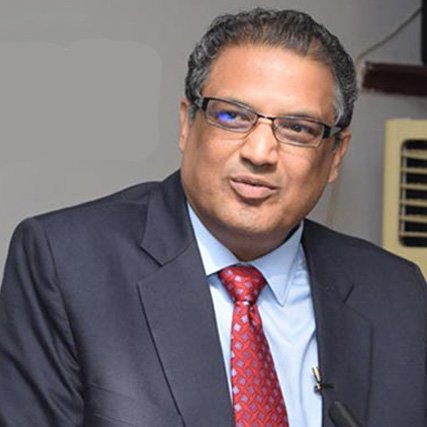Whether Alexander the Greek conquered Punjab thousands of years ago or not is historically disputed but the Sikandar from Gilgit Baltistan truly conquered Punjab with love. Alexander the Greek tried to subdue the Punjabi king Porus through cannons, secret tactics, and tricks and then, making Porus king again, he turned back. When he returned, whether he was sick or injured is contradictory in history but it is clear that something happened in Punjab that broke his resolve; he could not move forward, and died on the way back.
Our Sikandar G. M. Sikandar came alone, as a student, from the small village of Shigar in Pakistan to Lahore. He studied at Punjab University, passed the civil service examination, and joined the bureaucracy. This Sikandar had no weapons only a sweet tongue, a smiling face, and humility. Today, when he departed, the lower staff of the civil secretariat, political workers of all affiliations, and those who felt for society all joined in carrying his funeral. Every eye was tearful, and every heart was heavy, because a benefactor of all, a man of reconciliation and positivity, was gone.
Since the creation of Pakistan, the bureaucracy has adopted an attitude not of public servants but of regional kings. Gatekeepers at their doors, stiffness in their bodies, harshness and arrogance on their tongues these have become their symbols. Their life’s purpose lies not in public service but in postings and transfers. Their political views change with every new government those who turn day into night rise high, and those who speak truth remain cast aside. They love their chair so much that even when pretending to rise out of false respect, their back immediately touches the chair again. Even a full handshake is hard for them if they half extend their hand, it’s considered a favor. Their days are so busy that a poor visitor never gets an audience; he’s told, “The officer is in a meeting.”
Among such people, G. M. Sikandar was an angel. Never was a wrinkle seen on his forehead. He spread ease among people, soothed their pains; politeness, humility, and love for humanity were his ways. These are the virtues our society is being deprived of.
My acquaintance with G. M. Sikandar began in my student days. In my hometown, Joharabad, my friends and I had formed a small “Pakistan Sports Club.” Once or twice a year we held a tournament. The highest ranking officer in our town was the Assistant Commissioner. In one such tournament, we invited Assistant Commissioner G. M. Sikandar he came eagerly, distributed prizes among the players, came smiling and left smiling. Such an officer was a rarity even then, and he remained extraordinary even at the highest posts later in life.
If he liked one of my columns, he not only sent a message by phone but often called personally to encourage me.
At that time, Nawaz Sharif was the Prime Minister, and Ghulam Haider Wyne was the Chief Minister of Punjab. Someone complained to them that I was writing against their party and government. I was then a lecturer in the Education Department. G. M. Sikandar was ordered to summon my record and transfer me to some remote place. G. M. Sikandar indirectly sent me a message to be careful. Later I learned that two or three times, when the Chief Minister remembered this troublesome writer, he called G. M. Sikandar and said, “This man is always sitting with Nawabzada Nasrullah Khan send him away from the city.” G. M. Sikandar would nod in agreement but delayed things; he never presented the file, nor let any order be issued. The matter passed neither Wyne Sahib remained, nor his government. But G. M. Sikandar’s affection remained forever.
M. Sikandar developed a deep friendship with Chaudhry Pervaiz Elahi, which he upheld till his last breath. When Chaudhry Pervaiz Elahi was recently imprisoned, I wrote a column about his old age and health problems. G. M. Sikandar not only sent that column to the jail but also personally read it aloud to Pervaiz Elahi.
In short, G. M. Sikandar was one who built relationships, not broke them. These days, the trend is to use bitter language, accusations, and fabricated stories to put others down and oneself up. G. M. Sikandar, instead, would lower himself and feel joy in elevating others.
A senior journalist friend now a top bureaucrat remarked at G. M. Sikandar’s funeral: “Every person attending this funeral owed him something. Every rich and poor man came today to Bahria Town from faraway Lahore to repay his kindness.” He also said: “If a man truly loves humanity, people send him off with such honor that the world remembers.” G. M. Sikandar’s funeral was indeed like that. Otherwise, usually, officers are quietly buried by two or three colleagues, personal servants, and family members.
In reality, the bureaucracy created during the colonial era was meant to be a bridge between the British rulers and the local population to maintain authority, administrative control, and fear. After independence, the character of this bureaucracy should have been transformed into true public service but this reform never came. Officers like Masood Mahmood and Aziz Ahmad created, through arrogance and superiority, a master slave atmosphere in East Pakistan.
Even today, people like G. M. Sikandar are as rare as salt in flour, while the thick necked Aziz Ahmads are in the majority. The solution that Britain, America, and the rest of the world adopted was simple: administrative leadership should belong to elected representatives, and bureaucracy should work under them.
Creating new provinces will not change the mindset of bureaucracy and state machinery. It would be better to introduce new legislation under Article 240 of the Constitution to make the system of local governments mandatory and empowered.
Our Constitution and system have only one major flaw the failure to transfer power to the grassroots level. The 18th Amendment did a good job transferring powers from the center to the provinces but now the provinces have become new dictators. It is essential that Provincial Finance Commissions be activated and powers transferred to districts. Around the world, local governments handle 70% of governmental affairs while in our country, provincial governments handle 99%. Because of this overload of work and power, provinces cannot perform well nor do they have officers like G. M. Sikandar, who win hearts through humility and public service.
The majority are Aziz Ahmads and Masood Mahmoods, whose presence only increases the people’s sense of deprivation. The lasting solution to Pakistan’s deep rooted public problems lies in local governance this is the missing link that creates frustration in Pakistan. Article 240 of the Constitution exists but needs clarification. If the 27th Amendment is to bring any change, then local governments must be made empowered and functional.
To truly pay tribute to G. M. Sikandar, we must grant Gilgit and Baltistan their constitutional rights as Pakistanis, and through local body elections, empower the people and their regions.
 Colors
Colors  View Books
View Books 



